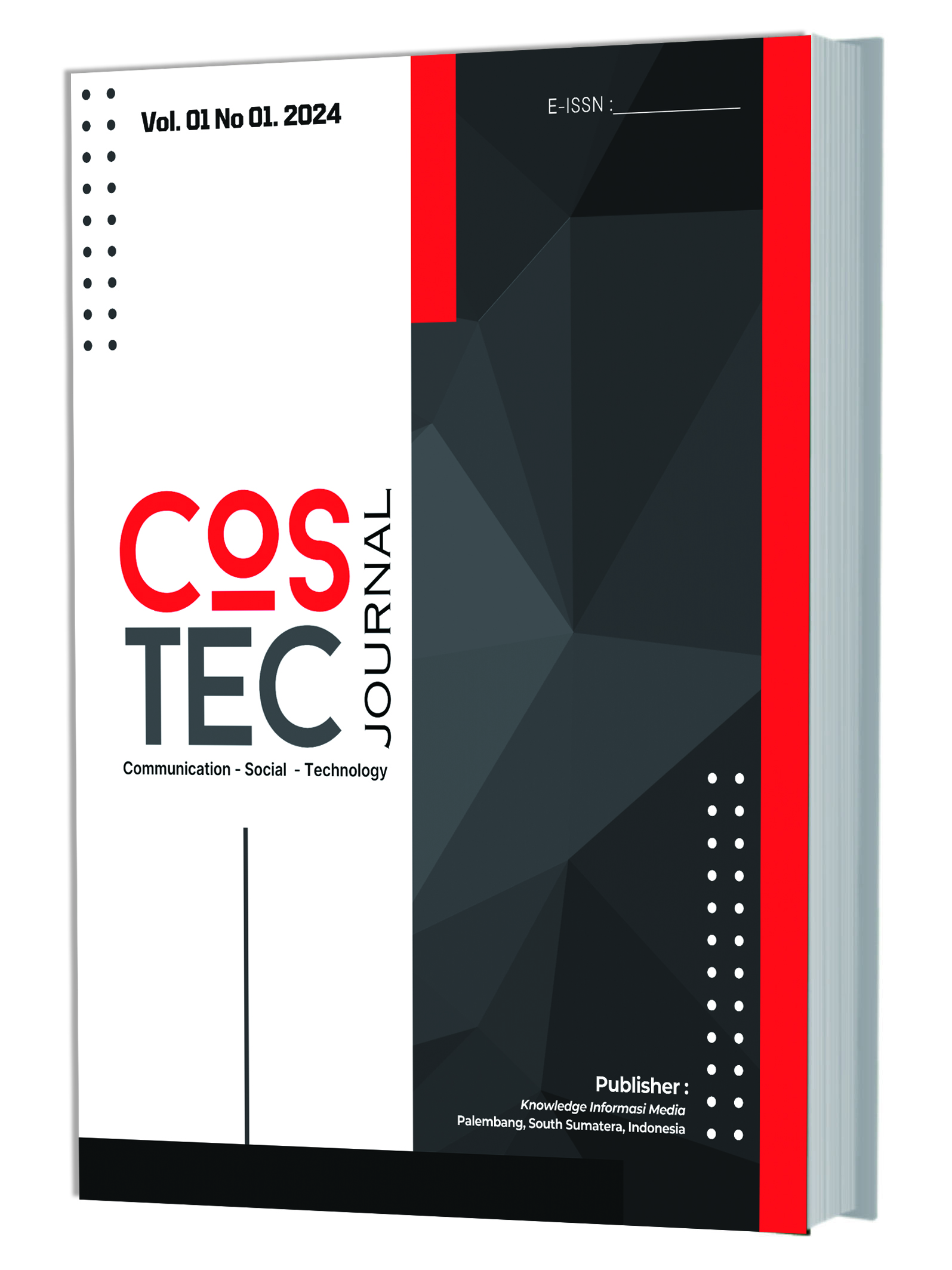INTERPERSONAL COMMUNICATION IN INCREASING AWARENESS AND ACCEPTANCE OF POLITICAL ISSUES IN SOCIETY
Downloads
Published
2024-10-30
Issue
Section
Articles

![]()
Copyright © Attribution-NonCommercial-ShareAlike 4.0 International (CC BY-NC-SA 4.0)
COSTEC JOURNAL (COSTEC (Communication. Social and Technology) 2024
..:: Foxx Publisher ::..
